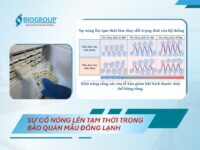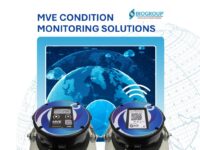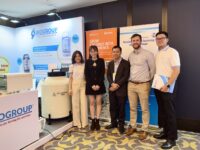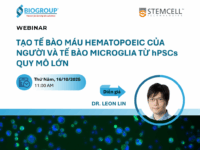Nordic takes a firm stand on replacing animal testing with new technologies
In Northern Europe, alternatives to animal testing have developed strongly under certain conditions. The 3R principles (Replace – Reduce – Refine) have become widely practiced and legally enforced. From the VAC2VAC project to the national 3R centers network, countries like Sweden, Denmark, and Norway are shaping a human-based, animal-free research ecosystem. This article provides a detailed insight into the model that the world can learn from.
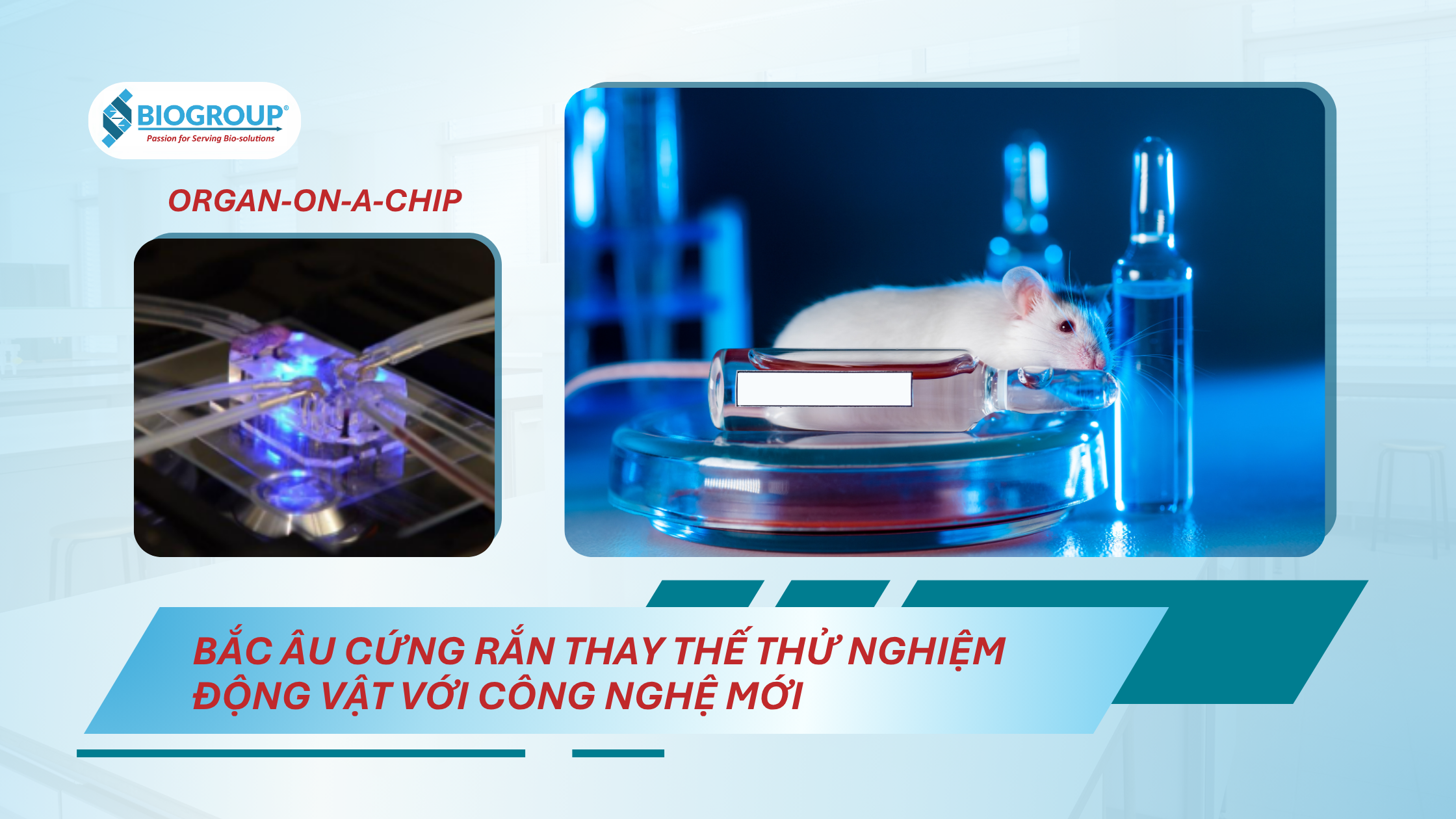
Contents
ToggleNational policies and 3R direction in Nordic (Sweden, Norway, Denmark, Finland)
The Nordic countries are generally leading Europe in animal welfare and the application of the 3Rs. Sweden, Denmark, and Finland are EU members, so they strictly follow EU Directive 2010/63/EU on the protection of animals used for scientific purposes. This directive requires member states to replace animals whenever scientifically feasible methods are available and mandates that any animal-use project must be approved by an ethics committee, considering 3R alternatives. Northern Europe has embraced the 3Rs early on, with Sweden being a pioneer. In 1979, the Swedish Parliament passed a resolution recognizing animal testing as an ethical issue that should be replaced as soon as possible and allocated funds for research into animal testing alternatives. This was seen as a move ahead of the EU (which only issued the directive to replace animal testing in 2010). Around the same time, Denmark and Finland also established ethics committees and 3R research funds. In Denmark, the government established the Danish 3R-Center in 2013, functioning as a partnership between the state and universities to promote replacement methods and 3R training. While Finland does not have an independent national 3R center, universities and veterinary agencies collaborate with the EU’s 3R network to implement Directive 2010/63. Norway (not an EU member but adhering to equivalent standards through the EEA) is also very active: Norway has completely banned animal testing for cosmetics since 2013, synchronized with the EU ban. Norway established Norecopa, the National Consensus Committee on 3Rs, in 2007, to advise the government and connect scientists on replacement methods. Norecopa supports building databases, awards for 3R research, and collaborates with other Nordic 3R centers. The Nordic countries also strongly participate in the European Union’s collective efforts toward animal-free science. In 2021, the European Parliament adopted a resolution calling for an action plan to end animal use in research and testing. In response, the European Commission began developing a roadmap in 2023, working with member states to promote replacement methods, initially in the field of chemical safety evaluation, and later in reducing animal testing in research and education. Sweden, Denmark, and Finland have all strongly supported this initiative. Representatives from the Swedish 3R Center participated in the European Commission’s 2023 workshop to contribute to the development of the roadmap for eliminating animal use, affirming that the EU’s common goal is to replace animals with more humane methods actively. However, some internal challenges remain, such as the budget for 3R in Northern Europe not increasing as expected. For example, Sweden has recently reduced funding for the 3R Center (established in 2017) due to budget constraints, leading scientists to worry that Sweden might fall behind in the animal-free revolution. Swedish 3R advocates have spoken out, stating that this is a critical time to increase commitment, as the EU is accelerating its new 2025-2027 animal replacement initiative. If Sweden does not maintain its proactive role, it risks losing its previous pioneering position. In summary, the Nordic countries strictly adhere to progressive EU laws, such as the ban on animal testing for cosmetics (since 2013), mandatory ethical evaluations for all animal research, and the requirement to consider alternatives in project approvals. Simultaneously, they have built institutional frameworks to promote 3R, such as the 3R Research Award (sponsored annually by the German Ministry of Agriculture and Nordic partners to honor outstanding 3R work) and national 3R committees in each country to advise on policies (Sweden has the National Animal Protection Committee, Denmark has the National 3R Committee under the Ministry of Veterinary Affairs, etc.). These efforts reflect Northern Europe’s long-term commitment to becoming a “global model” for animal-free scientific innovation.
Trends and technological advances in animal testing alternatives in Northern Europe
The Nordic countries, with their strengths in research and animal welfare, have made significant progress in developing and applying alternative technologies for animal testing.
3R centers and research networks
Sweden, Denmark, and Norway all have active 3R centers that fund alternative research projects. The Swedish 3R Center (under the Swedish Board of Agriculture) has become a national hub over the past six years, connecting universities and regulatory bodies to implement the 3Rs. The center has published recommendations on alternative methods, organized workshops to train scientists, and importantly, has worked with Swedish research funding agencies to prioritize 3R topics. The Danish 3R Center focuses on providing technical support to researchers. It maintains a 3R knowledge bank, shares available in vitro/in silico methods, and conducts surveys to assess the level of 3R awareness among scientists, thereby guiding appropriate educational activities. The Nordic 3R network also regularly collaborates, such as organizing regional 3R conferences, promoting the sharing of facilities (cell culture labs, toxicological databases, etc.) among countries.
VAC2VAC project – Animal-free vaccine testing
Scientists and companies in Northern Europe play a key role in the EU-funded VAC2VAC (Vaccine batch to vaccine batch comparison) project. VAC2VAC aims to develop a method for testing vaccine batches based on consistency, replacing the current animal testing for each batch. The project (2016-2022) involves several pharmaceutical companies (GSK, Sanofi, Pfizer, etc.) and European research institutes, with participation from the Paul-Ehrlich Institute (Germany), the Dutch Medicines Agency, and Nordic partners indirectly through the research network. A notable achievement of VAC2VAC was the successful development of a test kit to replace certain animal tests. In 2024, the project will announce the Monocyte Activation Test (MAT) method (using human monocyte immune cells to detect pyrogens), which has been approved to replace the rabbit pyogen test for the testing of the Summer Encephalitis (TBE) vaccine produced by GSK. This is the first instance of a VAC2VAC method being accepted by regulatory authorities and implemented, hailed as a “historic” decision toward eliminating animal pyogen tests. Additionally, VAC2VAC has developed quantitative antigen tests to replace potency tests on mice for vaccines such as diphtheria and tetanus, which are currently in the final validation stages. These advances show that Europe, particularly Northern Europe, is leading the way in improving vaccine testing procedures to be more animal-friendly.
Organ-on-chip technology and microtechniques in biomedical research
Northern Europe is home to strong research groups in microtechnology and cell biology that have created advanced organ-on-chip platforms. In Norway, the SINTEF Institute, in collaboration with the Norwegian University of Science and Technology, is developing microfluidic chips to culture human cells to simulate lung tissue and lung tumors in an environment with better oxygen control. A significant challenge with organ-on-chip systems is maintaining stable physiological conditions (like oxygen levels) for cells. The SINTEF team has discovered a new polymer material (polymethylpentene) that helps chips absorb oxygen and culture cells for over four days, opening up the possibility of long-term experiments on chips that were previously difficult to achieve. This technology is especially useful for researching immune interactions and cancer. The group’s ImmuneDroplets project allows observation of natural killer immune cells attacking lung cancer cells on the chip, replacing the traditional mouse tumor models. In Sweden, Chalmers University is well-known for applying AI and organ-on-chip technology. In 2021, Chalmers scientists developed an AI method combined with in vitro toxicity data to improve toxicity predictions (particularly in industrial chemicals). The EU highly praised this contribution in its roadmap to eliminate animal testing. Denmark also had an interesting project in 2022, where engineers at the Technical University of Denmark (DTU) created “artificial skin” from human skin cells for testing cosmetic chemicals, aiming to replace rabbit tests. The Danish government funded this project under the “National 3R Innovation Program,” hoping to help the cosmetics industry comply with the animal-testing ban while ensuring product safety.
Public-private cooperation in NAMs research
A strength in Northern Europe is the collaboration between governments, universities, and businesses in developing alternatives to animal testing. For example, the pharmaceutical company AstraZeneca (which has a large R&D center in Sweden) has announced that it is investing in organ-on-chip and organoid models to reduce animal testing in preclinical drug research. AstraZeneca collaborates with the University of Cambridge and Gothenburg to test liver chips for early liver toxicity prediction. Similarly, Novo Nordisk (Denmark) supports an academic network to develop virtual modeling for diabetes, replacing the use of genetically modified diabetic mice. These public-private alliances often operate under large initiatives like the European Partnership for Alternative Approaches (EPAA). Through these, Nordic governments and businesses jointly fund 3R research, share data, and promote regulatory acceptance of new methods. As a result, many alternative approaches have been approved by the OECD, originating from European research. For example, the skin irritation test on artificial skin EpiSkin, developed in France, and the fish embryo toxicity test from the German-Norwegian team, both of which were quickly adopted by Nordic countries when standards were established. Northern Europe maintains its position as one of the pioneering clusters of countries in replacing animal testing. They have a solid policy foundation (strict laws and clear directions), alongside the scientific capabilities to bring the 3R objectives to life. Although further efforts are still needed (such as increasing financial investment in 3R research), successes like the VAC2VAC project and innovative organ-on-chip inventions show that Northern Europe is playing a crucial role in advancing the global trend of replacing animal testing with more effective human-based models. Contact information:
- Website: https://biogroupvietnam.com/public/lien-he
- Hotline: +84 963 621 421
- Email: info@biogroupvietnam.vn
Refer to STEMCELL Technologies’ technology in replacing animal testing
Reference
- Swedish Board of Agriculture. (2023, December 20). 50 years of replacing animal experiments. https://jordbruksverket.se/languages/english/swedish-board-of-agriculture/animals/the-swedish-3rs-center/news/arkiv/2023-12-20-50-years-of-replacing-animal-experiments
- Norecopa. (n.d.). Danish 3R Center. https://norecopa.no/3r-guide/danish-3r-center
- Center for Alternatives to Animal Testing. (n.d.). Resources. https://caat.jhsph.edu/resources
- Humane Society International. (n.d.). Timeline: Cosmetics testing on animals. https://www.humaneworld.org/en/issue/timeline-cosmetics-testing-animals
- Norecopa. (n.d.). Alternatives to animal research. https://norecopa.no/alternatives
- Obelis Group. (n.d.). European Parliament calls for action plan to phase out animal testing. https://www.obelis.net/news/european-parliament-calls-for-action-plan-to-phase-out-animal-testing
- Federal Ministry of Food and Agriculture (BMEL). (n.d.). Animal welfare research prize 2025. https://www.bmel.de/EN/topics/animals/animal-health/animal-protection-research-prize-25.html
- Doctors Against Animal Experiments. (n.d.). Global approaches to achieve the transition to non-animal research. https://www.aerzte-gegen-tierversuche.de/en/specific-infos/international/global-approaches-to-achieve-the-transition-to-non-animal-research
- CABI Digital Library. (n.d.). The Danish 3R survey: Knowledge, attitudes and implementation for people working with laboratory animals. https://www.cabidigitallibrary.org/doi/abs/10.5555/20163208858
- Norwegian SciTech News. (2023, October). We develop new technologies that may reduce the need for animal testing in medical research. https://norwegianscitechnews.com/2023/10/we-develop-new-technologies-that-may-reduce-the-need-for-animal-testing-in-medical-research
- European Animal Research Association. (n.d.). Replacing animals in biomedical research. https://www.eara.eu/replacing-animals-in-biomedical-research
- AstraZeneca. (n.d.). Animals in research. https://www.astrazeneca.com/sustainability/ethics-compliance/animals-in-research.html
- National Toxicology Program. (n.d.). International Cooperation on Alternative Test Methods (ICATM). https://ntp.niehs.nih.gov/whatwestudy/niceatm/iccvam/international-partnerships/icatm
Categories
- Blog (58)
- Training & Webinar (28)
- Virtual Booth (1)
- New Products & Technologies (46)
- News (40)
- Recruitment (11)

